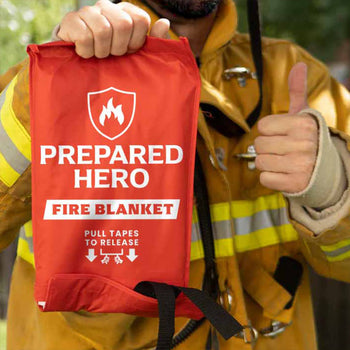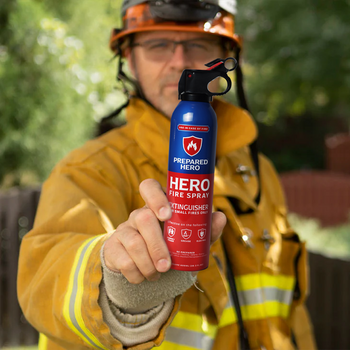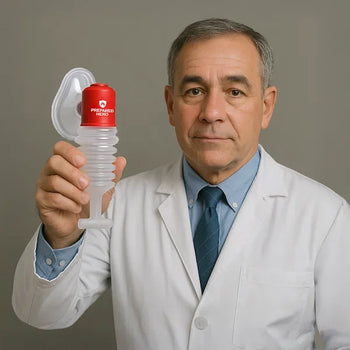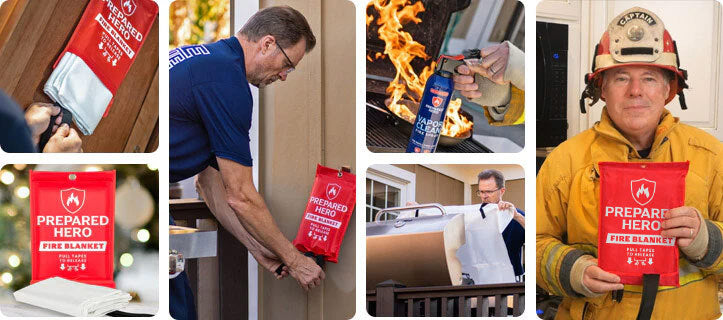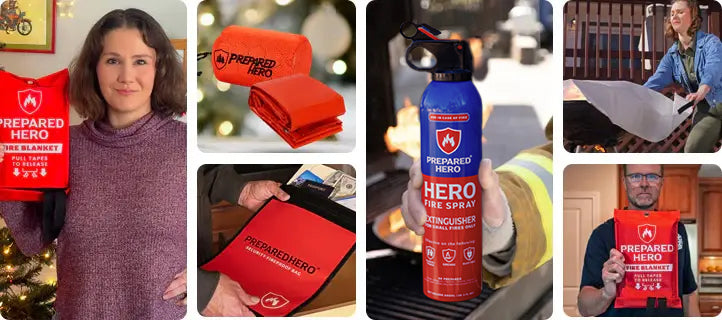Where you put your smoke detectors matters just as much as installing them. Proper placement makes sure they can detect...
According to the NFPA, cooking is the leading cause of reported home fires and injuries. It’s also the second leading cause of home fire deaths.
Ovens are common cooking appliances, and it’s easy to forget that high oven temperatures can easily cause fires. Plus, you’ve seen it a lot on TV. A cook rushes to a smoke-filled kitchen, opens the oven door, and sees the Thanksgiving turkey is on fire.
This leads us to the question: can you still use an oven that caught on fire? Check out the answer below.
How Do Oven Fires Start?

Oven fires start when something inside the oven gets extremely hot and ignites. Things that can ignite inside your oven include food residue, grease, and flammable ingredients.
For example, if you’re baking cheesecake and the cream cheese spills onto your oven, it can ignite and cause a fire. Another example is when grease and food residue build up in your oven. Over time, they can get extremely hot, ignite, and start an oven fire.
Flammable items you store or forget to remove can also start an oven fire. These items include dish towels and paper, which can quickly ignite when heated.
In a gist, an oven fire might occur whenever the heat inside the oven interacts with anything that can catch fire. That’s why experts recommend deep cleaning your oven every three months and more frequently if you heavily use your oven.
Common Causes of Oven Fires

There are many reasons why oven fires occur. Here are the top causes of oven fires:
Malfunction
The first reason why ovens catch fire is malfunctioning parts. Electric ovens are prone to this because of the way they’re wired. If the wires inside the oven are frayed or damaged, they can spark and start a fire.
An oven’s heating elements can also overheat or not turn off when it’s supposed to, leading to a fire. In addition, an oven’s thermostat can fail. As a result, the oven can’t regulate temperature correctly, causing it to overheat. This excess heat can ignite residue and flammable items inside the oven, causing a fire. Self-cleaning ovens designed to reach very high temperatures to burn off residues can also start fires. If the heating process goes wrong, a fire can start.
Dirt
Dirt and grime are hidden fire hazards in your oven. Even small bits of food left behind after baking can be a problem. These crumbs can burn when you heat your oven. Over time, they might ignite and start a fire. Your oven is prone to this if you frequently bake or use your oven’s self-cleaning feature.
Grease
Cooking any food with fat using your oven can start a grease fire. For one, the fat or oil can splash all over your oven as the food heats up. If the oil lands or accumulates on the hot parts of your oven, it can ignite.
Unattended Cooking
A lot of people leave their ovens on while there’s something inside it. They then forget about this, leading to fires.
When you’re not around to monitor what’s happening with your oven while it’s on, small issues can quickly turn into huge problems. For instance, food can overbake or burn, especially if you cook fatty food or add a lot of vegetable oil. The fat can splatter inside your oven and catch fire if it gets too hot.
You might also accidentally set your oven’s temperature too high or leave it on while something’s inside. Without anyone there to notice, the food will burn and eventually ignite. Sometimes, even a small fire can spread if you’re not there to turn off the oven or put out the fire.
Overflowing Batter
If you love baking desserts, be careful. Overflowing batter can cause a fire if it spills over the edges of the pan and onto the bottom of the oven. As the batter drips and builds up on the hot surface, it begins to cook and eventually burns. Once the oven gets hot enough, the batter can ignite.
Baking Paper
While you can safely use baking paper at temperatures up to around 428°F (220°C), it can catch fire in the oven if exposed to high temperatures or comes into direct contact with heating elements.
For example, if baking paper sticks out of your baking pan, it might touch the oven walls or heated rods at the top and burn. Additionally, using baking paper in a dirty oven increases the risk because the grease can catch fire and spread.
What to Do Immediately After an Oven Fire

Oven fires may not happen every day, but you should know what to do if it occurs. Here’s what you should immediately do after your oven catches fire:
1. Leave the door closed.
First of all, stay calm. While an oven fire seems scary, panicking won’t help. Instead, do your best to focus on the solution rather than the problem. While you may be tempted to open the oven to let fire in, don’t. Remember, oxygen is a component of the fire triangle, so leaving the oven open will worsen the fire.
2. Turn off the oven.
Next, turn off the oven. If you have an electric oven, turn it off and unplug it. Then, turn off and unplug nearby appliances. If you have a gas oven, turn it and the gas source off immediately. Even if you have a kitchen fire suppression system, turning off your oven ensures it’s safe to put out the fire.
3. Use a fire spray or extinguisher.
Once the flames die down, get your fire spray or extinguisher. Never use water to put out a grease fire. Chances are, your oven is filled with oil, so using water will make the fire spread. Sweep your fire spray or extinguisher at the base of the fire until it’s completely dead.
4. Ventilate your kitchen.
Open your kitchen windows and doors to ventilate the affected areas. Smoke and fumes from the oven fire might be dangerous, so you must clear them out. Ventilating the affected area also helps get rid of that awful smoke smell.
5. Call emergency services if needed.
If you can’t handle the fire on your own, call 911 immediately. Take your loved ones outside and wait for the authorities to arrive.
Can You Safely Use an Oven After It Caught on Fire?

The answer depends on three main factors: the type of fire, its intensity, and the extent of damage it did to your oven.
If the fire is caused by baking paper, you can most likely use your oven again. In contrast, if your oven burned due to an electrical fire, the wiring and heating elements might be affected. Damaged components can also lead to electrical hazards.
The intensity of the fire also matters. If the fire was not intense and contained, you might be able to use your oven again. This is especially true for self-cleaning ovens that can withstand high temperatures. A more intense fire also leaves more soot, which is harder to clean and might affect your oven’s performance.
The last factor that determines if you can safely use an oven after a fire is the damage done. If you see physical damages like melted components, warped metal, and charred heating rods, your oven might be unsafe to use. However, if there is no physical damage and the fire is contained quickly, do a test run. Make sure to do this after your oven has completely cooled down.
Even if you don’t see physical damage, your oven might be unsafe. If you’re not sure about the condition of your oven, it’s best to call a professional for a thorough inspection and repairs if needed. Dealing with any issues before using your oven after a fire ensures your safety.
Risks of Using a Damaged Oven

While you may be tempted to use your oven again after it caught on fire, don’t. Damaged ovens are a hazard, and here are the reasons why:
Broken Glass
Do not use your oven if there’s a crack in the door. Heat can put further stress on the chip or crack and cause it to shatter or explode.
Overheating
Your oven might also overheat if it’s damaged by fire. Remember, it’s better not to use your oven if you can’t control its temperature. Call a repair company to inspect its sensors and dispose of or repair them based on their recommendations.
Gas Leaks
A gas oven can also cause incredibly dangerous gas leaks. If you smell a gas leak after an oven fire, leave your house and call a professional immediately.
Loose Doors
A damaged oven might cause heat to escape. This affects your cooking and electricity bills. If a loose door is the only problem, contact a professional to fix it.
Conclusion
Knowing if you can use your oven after it catches fire is crucial for your safety and peace of mind. If you want to know more about how to prevent and put out an oven fire, check out our guide. Remember to prioritize your safety— don’t take chances with your kitchen appliances. Stay safe, hero!


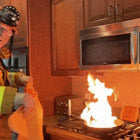 Fire
Fire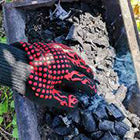 Safety
Safety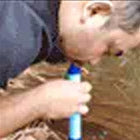 Survival
Survival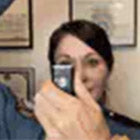 Protection
Protection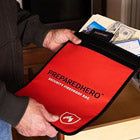 New
New
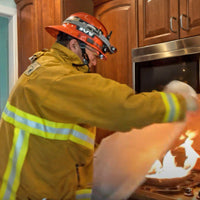 Fire
Fire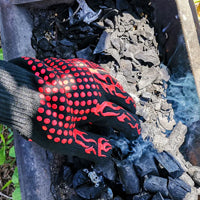 Safety
Safety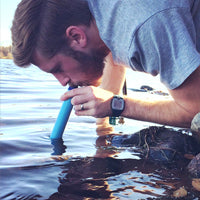 Survival
Survival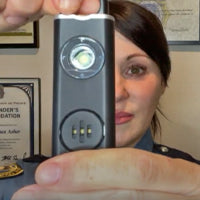 Protection
Protection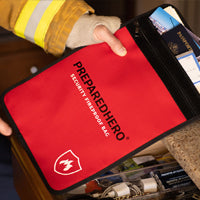 New
New
